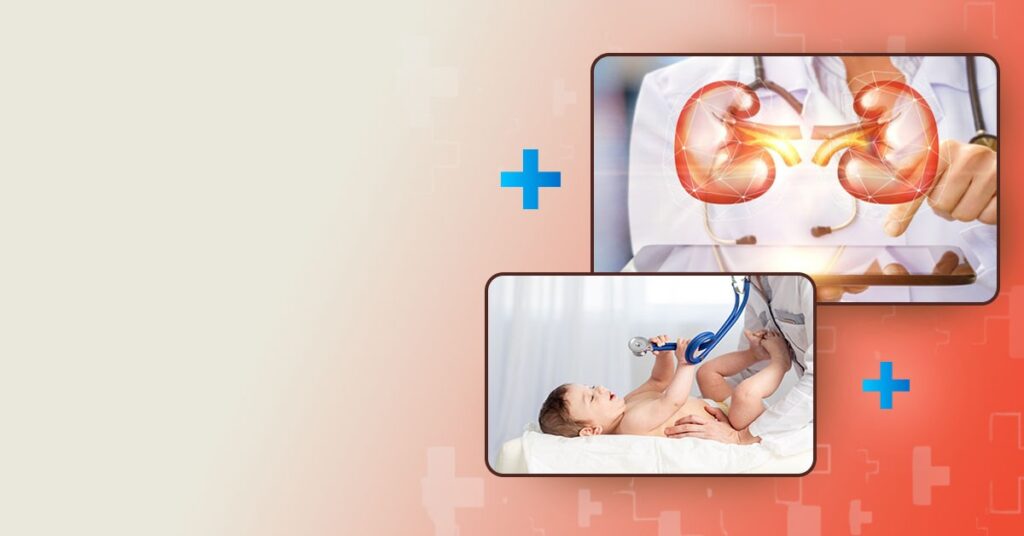
Paediatric Urology is a specialized field of medicine focused on the diagnosis and treatment of urological conditions in children. From infancy through adolescence, children can experience a range of urological issues that require expert care and attention.
Understanding Pediatric Urological Conditions
Children can face various urological conditions that affect their kidneys, bladder, ureters, and genitalia. Some of the most common paediatric urological conditions include:
1. Urinary Tract Infections (UTIs)
UTIs are relatively common in children and can cause discomfort and complications if left untreated. Paediatric urologists are skilled in diagnosing and treating UTIs to prevent recurrence and long-term complications.
2. Hydronephrosis
This condition involves the swelling of one or both kidneys due to a backup of urine. It can be congenital or acquired and requires careful evaluation and management to preserve kidney function.
3. Vesicoureteral Reflux (VUR)
VUR occurs when urine flows backward from the bladder into the ureters and sometimes into the kidneys. It can lead to UTIs and kidney damage if not addressed promptly.
4. Hypospadias
Hypospadias is a congenital condition in which the opening of the urethra is located on the underside of the penis instead of at the tip. Surgical correction may be necessary to improve urinary function and cosmetic appearance.
5. Undescended Testicles (Cryptorchidism)
In this condition, one or both testicles fail to descend into the scrotum during foetal development. Surgery may be required to bring the testicles into the correct position to prevent complications and ensure normal development.
Importance of Specialized Care
Paediatric urological conditions require specialized care due to the unique anatomical and physiological differences in children compared to adults. Paediatric urologists undergo extensive training to understand these differences and provide appropriate care tailored to children’s needs.
One crucial aspect of paediatric urology is the emphasis on minimally invasive techniques whenever possible. Procedures such as laparoscopy and robotic surgery offer smaller incisions, less postoperative pain, and faster recovery times, which are especially beneficial for young patients.
Moreover, paediatric urologists have expertise in addressing not only the physical but also the emotional needs of children and their families. They understand the importance of communication and empathy in providing comprehensive care that considers the child’s overall well-being.
Diagnosis and Treatment Options
Diagnosing paediatric urological conditions often involves a combination of medical history, physical examination, imaging studies, and laboratory tests. Paediatric urologists may use ultrasound, voiding cystourethrography (VCUG), magnetic resonance imaging (MRI), and other diagnostic tools to evaluate the urinary tract and identify any abnormalities.
Treatment options for pediatric urological conditions vary depending on the specific diagnosis and severity of the condition. In many cases, conservative management, such as antibiotics for UTIs or watchful waiting for mild hydronephrosis, may be sufficient.
However, some conditions may require surgical intervention to correct anatomical abnormalities or improve urinary function. Pediatric urologists are skilled in performing a wide range of surgical procedures, including ureteral reimplantation for VUR, hypospadias repair, and orchiopexy for undescended testicles.
Conclusion
Paediatric urology plays a vital role in ensuring the health and well-being of children with urological conditions. With specialized training and expertise, pediatric urologists offer comprehensive care that addresses both the physical and emotional needs of young patients and their families.
By understanding common pediatric urological conditions, the importance of specialized care, and available diagnosis and treatment options, parents can advocate for their child’s health and seek timely intervention when needed. With proper management, many pediatric urological conditions can be effectively treated, allowing children to grow and thrive without the burden of urological issues.
